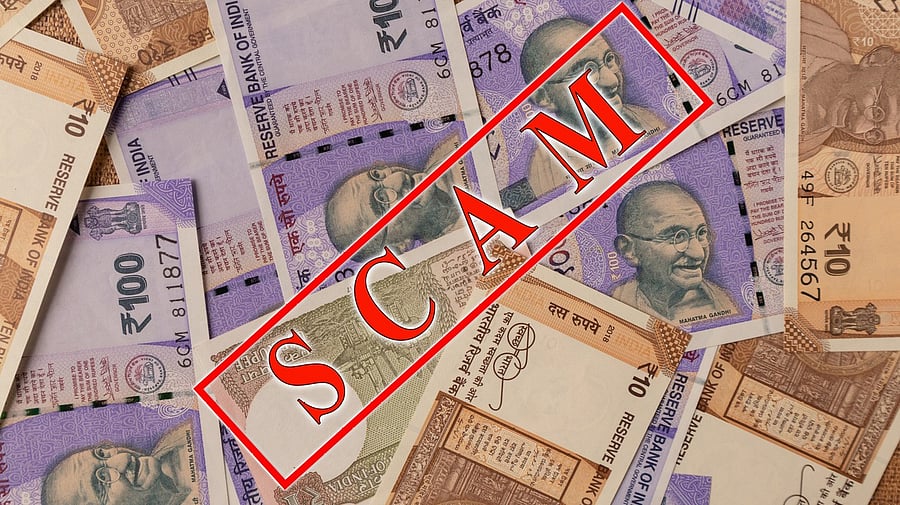
The PMLA was envisioned as a robust mechanism to deter financial crimes and ensure India’s compliance with global anti-money laundering obligations.
(Representative image)
Credit: iStock Photo
According to a recent news report, following several high-profile money laundering cases faltering in court, the Enforcement Directorate (ED) has decided to revise its prosecutorial approach. But what has the ED been doing with the Prevention of Money Laundering Act (PMLA) so far?
The PMLA was envisioned as a robust mechanism to deter financial crimes and ensure India’s compliance with global anti-money laundering obligations. Yet, its recent enforcement patterns indicate a deviation from its original purpose and increasingly appears to undermine democratic principles and the rule of law.
Data from the Ministry of Finance reveals a sharp rise in cases registered under the PMLA. From 209 cases in 2014, the ED registered over 5,200 cases by 2024, indicating a massive surge in investigations. However, the conviction rate has remained dismally low, with only 40 convictions secured by 2023; thus, highlighting the law’s ineffectiveness in delivering justice. Such figures suggest that the Act’s application is more selective and punitive than substantive.
The PMLA grants sweeping powers to the ED, including the ability to conduct arrests and seize assets without the safeguards typically required under criminal law. Those accused are often denied access to case records and specific charges, undermining the principle of natural justice.
The law also appears to be used disproportionately to target political adversaries. The ED’s growing caseload coincides with allegations of targeting political opponents and dissenters. Over six years, 132 PMLA cases were registered against sitting and former legislators, most of them affiliated with opposition parties. These cases often coincide with political developments, prompting allegations of selective enforcement.
The ED’s reach has extended beyond the political sphere into civil society, targeting activists and intellectuals. A case in point is the summoning of academic Navsharan Singh, which drew widespread condemnation. More than 500 concerned citizens, and democratic rights activists issued an open letter, highlighting the misuse of the PMLA to intimidate government critics.
The chilling effect is palpable. Scholars and activists, particularly those critical of contentious policies like the Citizenship (Amendment) Act and the abrogation of Article 370, have found themselves under the scanner. Such actions, while legal on paper, pose a serious threat to the vibrancy of India’s democracy.
In 2022, the Supreme Court upheld several contentious amendments to the PMLA, including provisions that reverse the presumption of innocence. Critics, including former Justice Madan B Lokur, argued that the ruling undermines fundamental rights by granting the ED unchecked powers. Lokur further noted that the absence of a requirement to disclose ‘grounds of arrest’ strips individuals of their right to a fair defense.
The absence of procedural safeguards has contributed to prolonged trials and delays in justice. Nearly 95 per cent of accused individuals are eventually acquitted, but only after enduring years of reputational and financial harm. This led the court to observe that the ED must focus on “quality prosecution” rather than indiscriminate investigations reflecting unease about its functioning.
Globally, anti-money laundering laws focus on financial institutions and high-value transactions. In the United States, for instance, similar provisions under the Patriot Act are balanced by rigorous oversight from the Congress and independent review mechanisms. India lacks such institutional checks, which compounds concerns about misuse.
The PMLA’s misuse reflects a broader regression in India’s democratic practices. According to the 2023 Freedom House Report, India’s democracy score dropped to ‘Partly Free’, citing increased suppression of dissent. Concurrently, India’s rank in the World Press Freedom Index 2024 plummeted over the years to 159 out of 180 countries — a worrying indicator of the shrinking space for free expression.
These indicators align with a pattern of legislative and administrative overreach. Laws such as the Unlawful Activities (Prevention) Act (UAPA) and the sedition law have similarly been deployed to silence critics. Together, these trends point to an alarming centralisation of power.
Urgent reform is needed to restore faith in the PMLA’s enforcement. Transparency in ED investigations must be ensured by mandating the disclosure of charges and evidence. Independent oversight bodies, similar to the Central Vigilance Commission, could help to mitigate bias and ensure accountability. Further, the judiciary must reassert its role as the guardian of constitutional values.
Laws that dilute the principles of natural justice and presumption of innocence warrant strict scrutiny to prevent abuse. A democracy’s resilience lies in its ability to safeguard rights, even for its most strident critics. Without these changes, the PMLA risks becoming a symbol of authoritarian overreach, undermining the very foundations of our republic.
(Yadul Krishna is a policy economist and a parliamentary secretary to a Rajya Sabha MP. X: @yadul_krishna.)
Disclaimer: The views expressed above are the author's own. They do not necessarily reflect the views of DH.